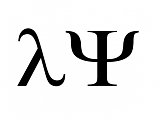Blog
-
10 Properties of Chaotic Systems One Should Know
 Instead of complaining that people don’t have the proper takeaways form chaos science, why not create my own little series on fractal and chaotic phenomena. Often, the descriptions that are available online are very mathematical, and it is not immediately obvious why the information should be relevant to you. That is particularly true, if you have no clue about the subject yet. I’ll try to go with a minimum of mathematics in the beginning, and try to explain it step by step.
Instead of complaining that people don’t have the proper takeaways form chaos science, why not create my own little series on fractal and chaotic phenomena. Often, the descriptions that are available online are very mathematical, and it is not immediately obvious why the information should be relevant to you. That is particularly true, if you have no clue about the subject yet. I’ll try to go with a minimum of mathematics in the beginning, and try to explain it step by step.Posted , Author Dana Stoll
-
The Popperian Falsification Fallacy
 Popper’s approach to truth implies that one cannot state truth. Instead, theories have to be falsified. As a popular assumption, doing so frees one from making false assumptions about truth. But there’s a hidden fallacy in this approach that is not very obvious, and can have devastating consequences if it becomes unconscious and forgotten.
Popper’s approach to truth implies that one cannot state truth. Instead, theories have to be falsified. As a popular assumption, doing so frees one from making false assumptions about truth. But there’s a hidden fallacy in this approach that is not very obvious, and can have devastating consequences if it becomes unconscious and forgotten.Posted , Author Dana Stoll
-
Die Nichtphänomenologie der Quantenmechanik
 Jemand erklärt mir, Quantenmechanik ist der Beweis dafür: alles ist Bewusstsein, und ich spontanentlade im Google+-Feed von Jutta Ahrens.
Jemand erklärt mir, Quantenmechanik ist der Beweis dafür: alles ist Bewusstsein, und ich spontanentlade im Google+-Feed von Jutta Ahrens. Ich glaube, manche verwechseln rekursive Interaktion mit Nichtexistenz, weil sie sie gedanklich irgendwie wieder in die lineare Kausalität aufklappen.
Den Rant muss ich hier aber für alle Ewigkeit festhalten, dass ich zu sowas fähig bin, ich! :-) …
Posted , Author Dana Stoll
-
The Art of Balls: Collected Texts from the Old Webpage
 Due to popular demand I’ve compiled all tetxts of the old TheArtOfBalls.com website into one single document and added it to the Art of Balls section on gwenstoll.com.
Due to popular demand I’ve compiled all tetxts of the old TheArtOfBalls.com website into one single document and added it to the Art of Balls section on gwenstoll.com.Unfortunately, I never got around to translate the last two sections into English. So you’ll have to live with a mix that starts English, and suddenly turns German for the last third :-)
Due to heavy time constraints, I decided to publish it on the site as is, instead of never getting around to doing so.
Enjoy!
Posted , Author Dana Stoll
-
Four Definitions of Agile
 Agile is not agile. People often cannot agree on meeting culture. Different ways of thinking sometimes are not so subject specific. Rather, complete mindscapes can be defined that shape indivual thinking. At least Maruyama (1980) gave us a model to think along these lines. What does “agile” mean for all four proposed thinking types? Read here …
Agile is not agile. People often cannot agree on meeting culture. Different ways of thinking sometimes are not so subject specific. Rather, complete mindscapes can be defined that shape indivual thinking. At least Maruyama (1980) gave us a model to think along these lines. What does “agile” mean for all four proposed thinking types? Read here …Posted , Author Dana Stoll